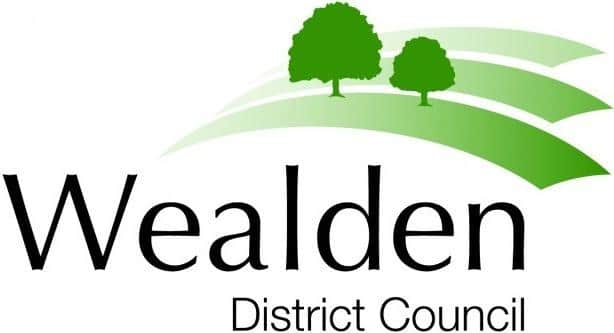Wealden councillors agree budget proposals
and live on Freeview channel 276
On Wednesday (February 21), Wealden District Council agreed its annual budget for the 2024/25 financial year, including a 2.99 per cent increase in council tax for Wealden residents.
The 2.99 per cent increase, which will bring the council’s share of the bill for an average band D household to £214.72, is the maximum amount available to the council without holding a local referendum.Introducing the budget, cabinet finance portfolio holder Greg Collins (Green) said: “The government’s financial settlement is crucial to our financial wellbeing and that settlement is predicated on Wealden raising council tax by the maximum permitted amount.”
Advertisement
Hide AdAdvertisement
Hide AdHe added: “It is not likely, nor would you expect, a Green councillor to bandy the word ‘conservative’ about. But this is, with a small c, a conservative budget.


“There are people in this room who I know are disappointed that this budget is not more radical and I suspect there are people in this room who are disappointed because this budget is not conservative enough.”
The council tax increase is set to come into effect from April. It come alongside increased demands from other precepting authorities — such as East Sussex County Council, meaning the full bill for residents will be considerably higher.
This will come alongside increases in the council’s fees and charges. These cover a wide range of services, from photocopying to the cost of using Wealden Crematorium.
Advertisement
Hide AdAdvertisement
Hide AdThe authority is also set to increase the rent for its social housing by 7.7 per cent, in line with government policy.
Wealden District Council’s budget does not include any new savings for 2024/25 nor the following financial year, but the authority’s medium term financial plan does warn of savings further into the future.
These future savings come to around £250,000 in the 2026/27 financial year, £750,000 in 2027/28 and £1.25m in 2028/29.
………………
Also coming into force in April is the introduction of new rules governing premium payments for empty homes within the district.This 100 per cent premium — essentially a requirement to pay double the normal council tax bill — currently applies to properties which have been left empty and unfurnished for more than two years. As a result of the change approved, the time limit will be reduced to 12 months from April.
Advertisement
Hide AdAdvertisement
Hide AdThese extra charges increase for properties which have been left empty for longer periods of time, with a 200 per cent premium for properties which have been left empty for more than five years and a 300 per cent charge for properties left empty for more than 10 years.
While not set to come into effect until April 2025, the council is also looking at introducing a similar premium payment for second homes. This would see holiday homes and other similar properties charged double council tax.
Cllr Rachel Milward (Green), the council’s deputy leader and portfolio holder for housing, said: “As we know … we are in the midst of a housing crisis. We need to do everything we can to encourage the supply of safe, affordable and sustainable housing.
“Many of you who’ve knocked on doors when canvassing hear how residents are understandably upset when they know there are empty homes. We are also in the midst of an extreme climate crisis and it is vital that we don’t build when we could reoccupy.
Advertisement
Hide AdAdvertisement
Hide Ad“So we want to do everything we can to encourage recirculation and reoccupation of properties and to make sure that houses are homes as much as possible.”
While agreed, the introduction of the premium payments came in for criticism from several members, who argued the changes had not gone through a sufficient scrutiny process.
The concerns were first raised by Cllr Andrew Wilson, who tabled an amendment calling for vote on the policy to be deferred until examined by the council’s audit, finance and governance committee (which Cllr Wilson chairs).
Councillors heard how this deferral would delay the implementation of the changes by a full 12 months, as they would need to be introduced at the start of the council tax year and there was not sufficient time to run the process.
Advertisement
Hide AdAdvertisement
Hide AdCllr Milward also argued that the withdrawal of the changes would leave a hole in the budget, which could put the council’s support for vulnerable households at risk. She also disputed the view that the scheme had been brought forward without following the proper process.
Ultimately, the deferral was voted down, with 18 votes in favour of the amendment and 20 against. There were three abstentions. The changes were then agreed, although not without further criticisms being raised.
Cllr Wilson said: “I am not satisfied with the level of detail that is in here and I can’t possibly support this with the level of detail that is in here.
“I have argued for further scrutiny and unfortunately, by a very narrow margin, many councillors have voted to [charge] many property owners in the district more without any scrutiny on this issue at all.”